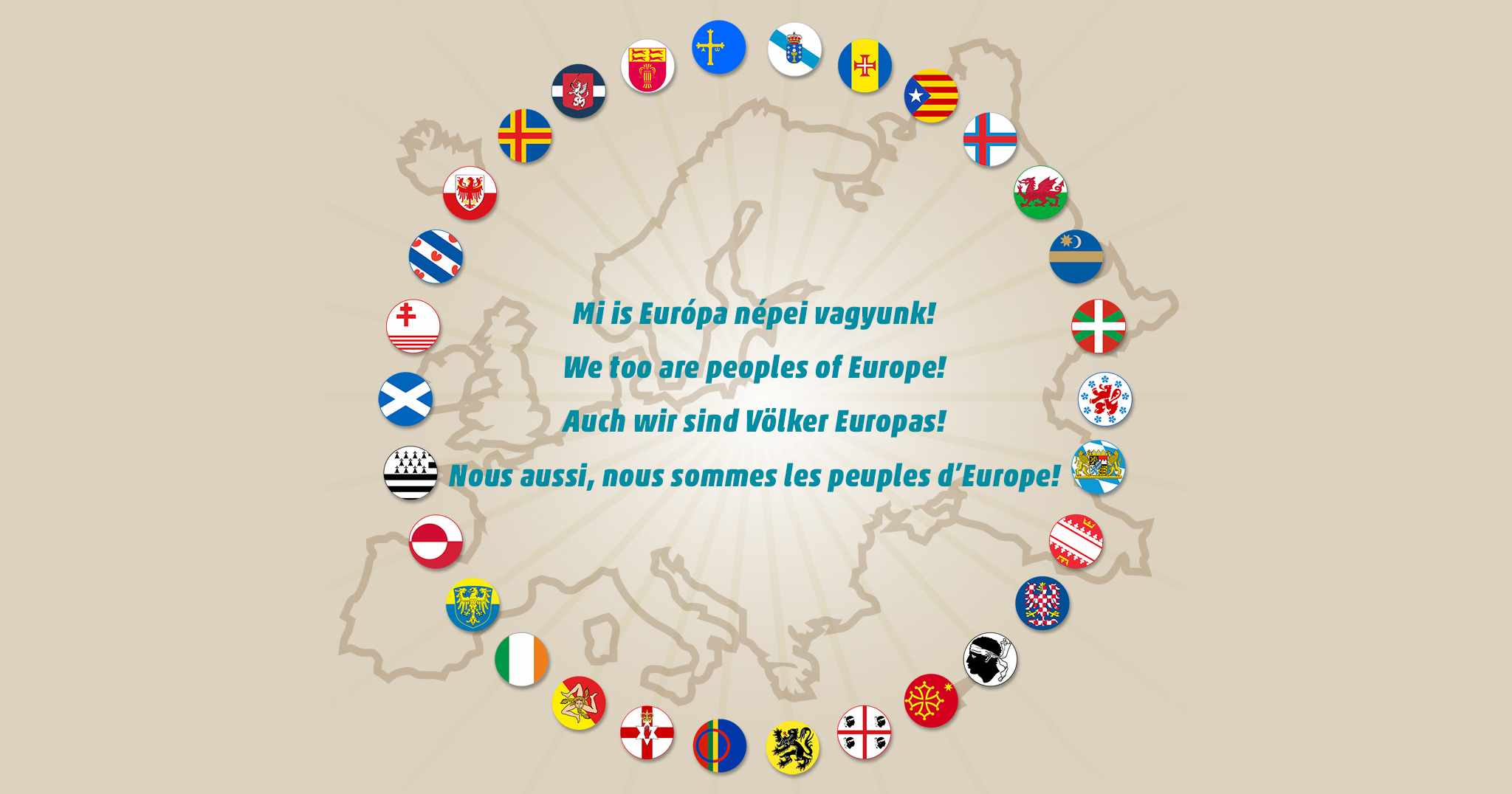Paul Butcher (Scotland), Erika Casajoana i Daunert (Catalonia), Balázs Izsák (Szeklerland), Wauter Patho (Flanders), and Zsolt Szilágyi (Partium) have created a multilingual Facebook group called Friends of National Regions, with the intention of opening the path, in the virtual space, towards mutual understanding and closer ties among the inhabitants of national regions.





 Our symbols
Our symbols  Autonomy
Autonomy

 Szekler National Council
Szekler National Council